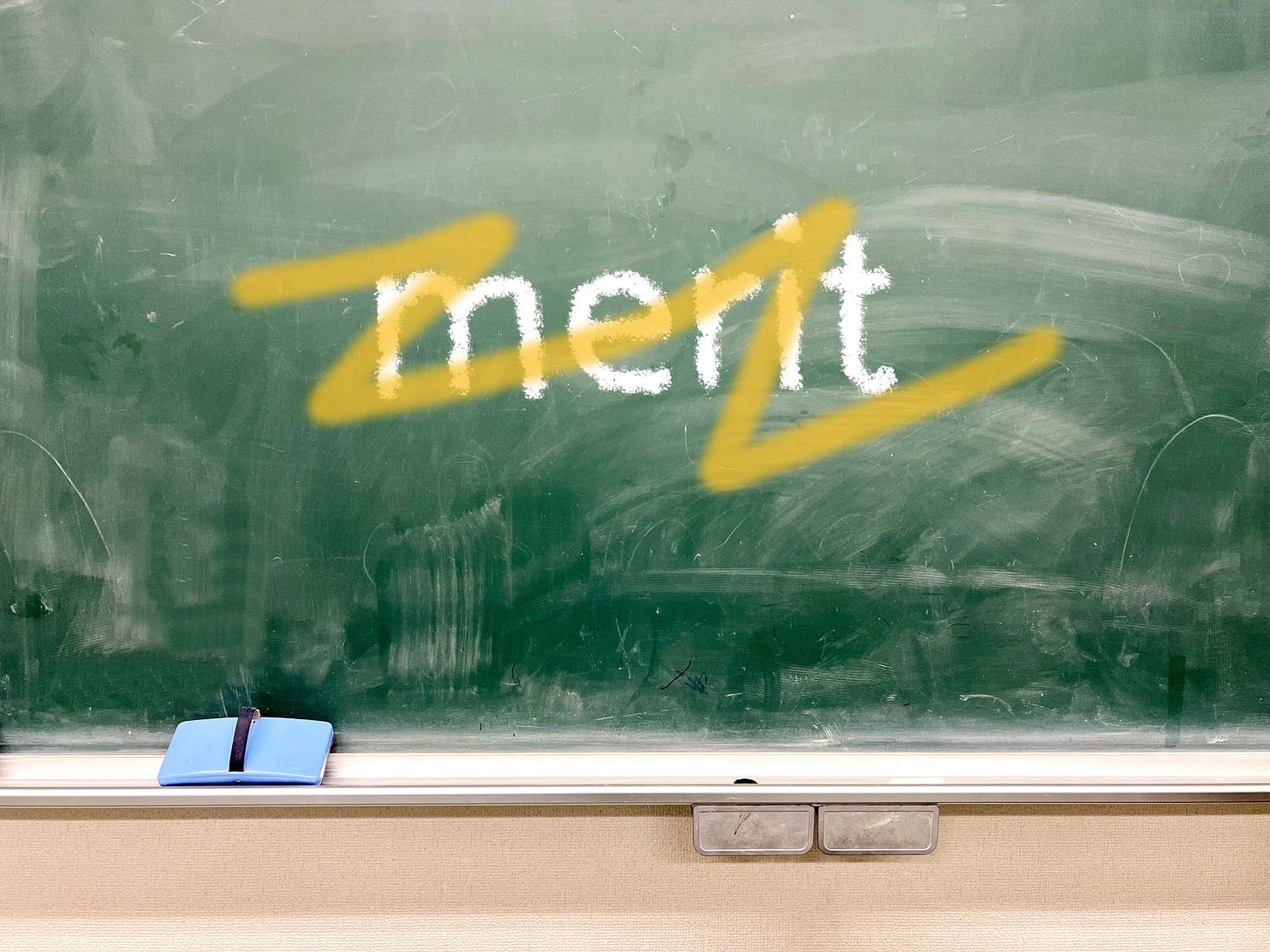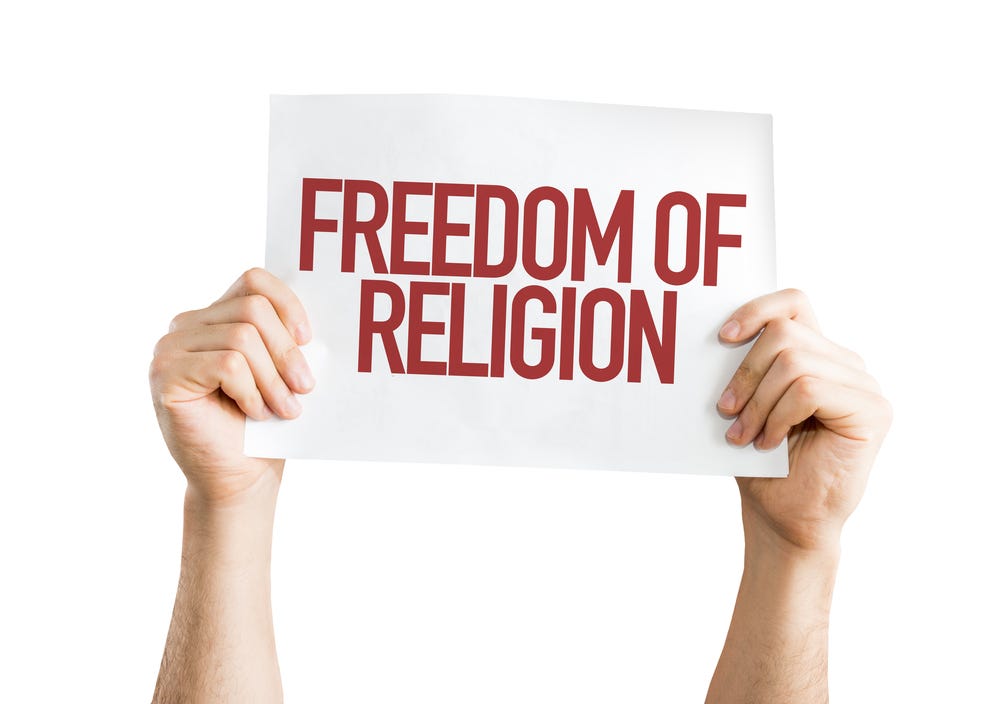E-Pluribus | September 25, 2023
Merit under fire; don't know much about history, and it's bad; and a big win for religious liberty.
A round-up of the latest and best writing and musings on the rise of illiberalism in the public discourse:
Ian Kingsbury: A New Front in the War on Merit
Peer-reviewed journals routinely publish politically charged commentary and pass it off as unbiased science, and the problem is poised to get much worse. Ian Kingsbury at City Journal reports on a new effort to implement a “diversity factor” as part of the scoring process for academic publications.
[A new study,] “A new tool for evaluating health equity in academic journals; the Diversity Factor,” published in PLOS Global Public Health, correctly points out that impact factor is an imperfect measure of cultural and scientific reach. Among the problems: researchers game the stats through self-citation, and journal-impact factors are skewed by studies that pick up extremely high numbers of citations. Still, impact factor represents a reasonably good proxy of the thing it purports to measure. While sensible researchers know not to let the perfect be the enemy of the good, activists instead see imperfection as opportunity. Enter: the “diversity factor.”
The authors propose that henceforth studies should be scored according to both impact factor and their new diversity metric. Though they admit that the diversity factor is still in development, they suggest it should award points on the basis of diversity within the dataset (for example, representation of ethnic minorities), representation of authors from multiple countries, greater female representation within the authorship group, and affiliation with non-prestigious universities. These recommendations, the authors contend, will offer “a more complete perspective on factors aligned with scientific excellence based on contribution to advancing diversity and inclusion, improving health outcomes, and achieving equity.”
[. . .]
The retroactive application of the diversity factor would be pedantic, but the potential future application of the diversity factor (or similar schemes) is alarming. Research impact has been an important consideration when it comes to the allocation of grants and the recruitment and promotion of college professors. Awarding points to research on the basis of commitment to socially desirable ideas about inclusion induces researchers to fret over concerns other than producing meaningful advancements to our knowledge.
[. . .]
The end of affirmative action should have heralded a return to meritocracy over identity politics. Instead, activists are working overtime to redefine merit.
Read it all here.
Robert Pondiscio: Student ignorance of US History and Civics a ‘National Embarrassment’
As the quality of US public education falls, so does student understanding of American history and civics. Rather than throw in the towel, Robert Pondiscio, longtime advocate of a civics requirement for high school graduation, now believes we should mandate the US Citizenship test for fourth graders to end this “national embarrassment.” Via the American Enterprise Institute.
A new study from a pair of Penn State researchers finds that passing the US Citizenship Test as a high school graduation requirement does nothing to improve youth voter turnout. Within the last decade more than a third of US states have adopted and implemented a version of the “Civics Education Initiative” (CEI), but according to study co-author Jill Jung, a graduate student in education policy studies, “when it comes to improving voting among youth, mandating civics tests that focus on assessing political knowledge might be a wasted effort.” The study by Jung and Maithreyi Gopalan appears in Educational Evaluation and Policy Analysis, a peer-reviewed journal of the American Educational Research Association.
The US Citizenship Test has been in place since 1986. It consists of a list of 100 questions about American history, our system of government, and the rights and responsibilities of citizens. Immigration officials administer the test orally, asking would-be citizens seeking naturalization 10 of the 100 questions; they must answer at least six correctly to pass. The questions aren’t particularly difficult. They consist of things like naming any one of the three branches of government, how many US senators there are, and naming a right or freedom guaranteed by the First Amendment. Rock-bottom, basic stuff.
[. . .]
It is hard to overstate what a low bar the citizenship test represents. At one conference I attended, a teacher at a Core Knowledge charter school, a naturalized immigrant herself, pointed out that 75 of the 100 questions on the US citizenship test were covered in the Core Knowledge Sequence by the end fourth grade. Moreover, there is the simple and obvious double standard: why hold immigrants accountable for knowing a few basic facts about our history and system of government, but not students in our own schools?
[…]
I no longer think it’s a good idea for the US Citizenship Test to be a high school graduation requirement.
It should be an elementary school graduation requirement.
Read the whole piece.
Robert Shibley: Fellowship of Christian Athletes Scores Big Win For Religious Liberty in Ninth Circuit
California has not been friendly to religious freedom in recent years, but the latter finally appears to be regaining some ground. Robert Shibley writes for the Foundation for Individual Rights and Expression (FIRE) of the Ninth Circuit Court’s decision in favor of the Fellowship of Christian Athletes in San Jose.
In April 2019, controversy erupted at the San Jose Unified School District’s Pioneer High School in California over a Fellowship of Christian Athletes requirement that student leaders comply with the group’s Statement of Faith and its Sexual Purity Statement. The former requires student leaders of the group to hew to the tenets of traditional Christian theology and the belief that “marriage is exclusively the union of one man and one woman,” while the latter affirms that “the appropriate place for sexual expression is in the context of a marriage relationship.”
After a teacher complained about FCA’s faith requirements to the school principal and later presented his concerns to a school leadership “Climate Committee” composed of several school department chairs and administrators, the school revoked FCA’s official recognition as a school student club.
For the 2019-20 school year, FCA applied for recognition again and, predictably, was denied. Yet as the Ninth Circuit notes, the Satanic Temple Club, which even the complaining teacher believed was formed to mock FCA, was approved despite having its own set of non-religious “tenets” similar to FCA’s faith requirements.
[. . .]
In her opinion for the Ninth Circuit, Judge Consuelo Callahan discusses the 2020 case of Fulton v. City of Philadelphia, in which all nine Supreme Court Justices agreed that Philadelphia’s refusal to contract with Catholic Social Services for foster care because it would not place children with same-sex couples violated the Free Exercise Clause. Chief Justice Roberts wrote for the Court that Philadelphia’s “system of entirely discretionary exceptions” rendered the policy not generally applicable, and thus unconstitutional:
The creation of a formal mechanism for granting exceptions renders a policy not generally applicable, regardless whether any exceptions have been given, because it “invite[s]” the government to decide which reasons for not complying with the policy are worthy of solicitude.
[. . .]
Time and time again, the label of “all comers” has been slapped on policies that are anything but, in an effort to engage in viewpoint discrimination in a manner that might fool courts, but which certainly chills the expression of students in both high school and college. Last week’s decision makes that harder to get away with, which can only benefit the individual rights of everyone at public colleges and high schools.
Read it all.
Around Twitter (X)
Amplifying a RealClear Opinion Research poll, Tom Bevan highlights Democrat hostility toward free speech (though the poll results aren’t that great for Republicans, either).
Brian Krassenstein, via Cathy Young, provides a disturbing update on a 2-year-old “Karen” episode.
And finally, a good reminder from Ben Franklin (via Foundation for Individual Rights and Expression):










